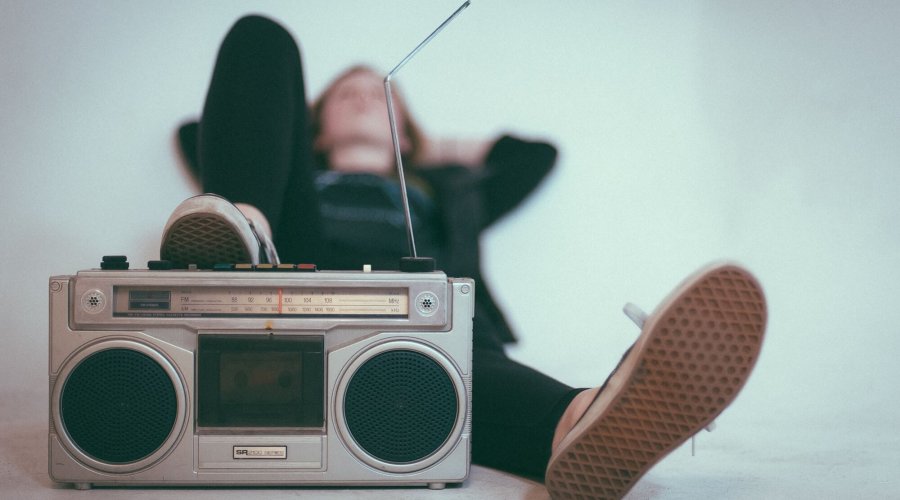Getting your music onto radio can be a tricky task. However, there are a few ways you can ensure your music does not fall at the first hurdle. Within this blog, we will explore tips to help you submit music to radio within the UK, giving your tracks the best chance possible to get heard.
Key areas to look at include:
- Track Format and Versions
- Edits
- Age of Release
- Garner Local Support
- Creating a buzz!
- Database Creation
- Is My Sound a Good Fit?
Track Format and Versions
Different radio stations wish to receive music in specific formats. Some prefer a CD, while others want a wav file or a link on platforms like Spotify. You can usually find out the format from online radio station submission forms, calling the radio station, or emailing someone that works at the station.
It is also key for the release to be clearly labelled with your artist’s name and track title. It sounds obvious but you’d be surprised how often songs get overlooked because they can’t work out who the artist is. You want the listener to fall in love with your music straight away so leave details that are clear and concise for them to follow up.
As a rule of thumb, we would suggest that you have the track in the following formats as a bare minimum:
– WAV version of the full track
– Mp3 version of the full track
– Instrumental version
– Individual stems (in case needed for future). Example of this include, vocals, drums, guitar, synths etc.
Edits
If you are releasing an explicit single, make sure you also record or edit a clean version. Most radio stations do not accept explicit content. Do research into each of the stations or DJs to make sure that you are sending them the correct version.
It is always important for your track to be a radio edit. This means that any extra audio that isn’t important to your target audience is cut out. This leaves all the juicy hook lines and catchy choruses for the radio listeners to enjoy. This doesn’t necessarily mean you should jeopardize the quality of your music for a shorter track, just keep in mind this is something radio heads may think about when accepting a track onto their playlist. According to the 2019 PRS blog ‘Song length: the Spotify effect’ it was noted that the average song length is now approximately three minutes and 3 seconds in length, one minute and 13 seconds shorter on average than they were 20 years ago.
Age of Release
Some radio stations prefer songs to be fresh and new to the market, whereas others could not care less about how old the song is. Once again, it’s all about researching the radio station and finding out their preferences.
Garner Local Support
Gaining local support as an artist is important as a strong fan base can set you above the rest when looking to progress your career and aim for further afield opportunities. Be sure to check out local platforms too, like BBC Music Introducing, which aims to support unsigned, undiscovered, and under-the-radar UK music talent. The local and regional radio divisions consist of forty stations, and it gives artists the opportunity to be potentially played nationally on BBC Radio 1, 1Xtra, Radio 2, Radio 3, 6 Music and the Asian Network, as well as playing Introducing stages at festivals such as Glastonbury, Reading and Leeds, and BBC Radio 1’s Big Weekend. Previous BBC Music Introducing artists include George Ezra, Ed Sheeran and Florence and the Machine, to name a few. To get started with BBC Music Introducing, you need to upload your songs to their BBC Introducing Uploader, from here, you will get assigned a local station for the area in which you live. If the presenters listen to your track and like it, they’ll play it! If they like it a lot, they might even pass it on to other BBC radio stations (local and/or national).
Creating a buzz!
Really focus on getting some media coverage for yourself while leading up to your release. This can be anything from getting featured in a magazine, to having a blogger or reporter come down to watch one of your live gigs and asking them to write a piece on the show. There are so many new and innovative ways you can utilise social media and other outlets to get an exciting atmosphere going around you. When someone searches your name online, they can see you’ve been working hard to get your name out there. It also adds to your professionalism as an artist which radio executives love!
Database Creation
This is good practice anyway, but make sure that you keep a list of industry people that you meet and connect with in-person and online (including their details such as email address). Creating your database can feel like a laborious task, but you’ll be able to have a useful list of contact to rely on when you need them the most.
Is My Sound a Good Fit?
Don’t just send your music to as many radio stations as possible, this is called blanket marketing and has been proven very ineffective. This is like putting a flyer through everyone’s door in your neighbourhood without looking into the demographics of that neighbourhood. You really need to get to know the DJs at the station and listen to their shows. See how your genre and music could possibly fit in. Maybe they have a section of their show dedicated to your genre of music for example? If they are constantly playing well-known mainstream pop, it’s very unlikely you’ll make even a dent in their emails. Think realistically and try to put yourself into the DJ’s shoes and consider what they might be looking for, and whether it could be you.
Do you have any tips for songwriters increasing their chance of radio play in the UK? Feel free to contact us directly. Alternatively, you can also follow us on Facebook, Instagram, and Twitter.

